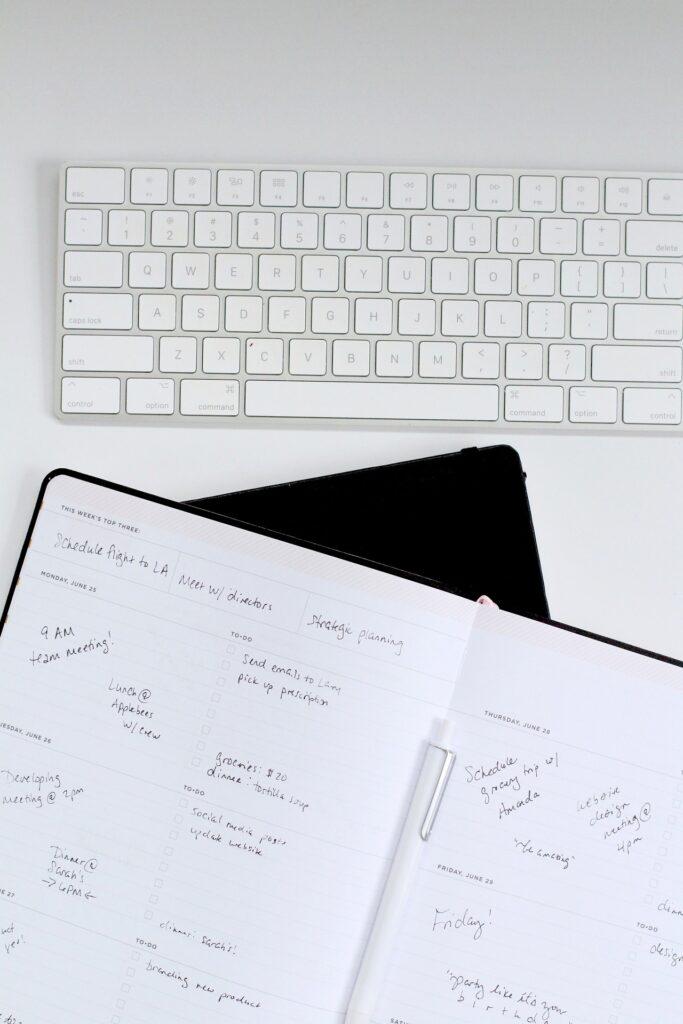
12 Permanent Weight Loss Tips
Even though there is a lot of bad advice out there about how to lose weight, there is also a lot of good advice that has been reviewed by experts and is backed up by scientific evidence for those who are mentally healthy enough to follow it.
Feel like you’ve exhausted all of your options for losing weight? To lose weight, try a new strategy. Here are 12 tried-and-true methods for permanent weight loss.

1. Need to reframe your objectives.
Don't call what you're doing a diet; call it anything you want. The issue with diets is that they can only be used for a limited amount of time. Changing your habits for the rest of your life is the only way to ensure long-term success. To ensure long-term success, it's important to reframe your objectives and think of what you're doing as a lifestyle change rather than a diet.

2. Make your objective significant.
Stop thinking about how you can get into your old pair of pants and start thinking about how you can feel better and have more energy. Rather than focusing on externals, it's more effective to work on improving how you feel, for example. Keeping your mind on the positive outcomes increases your likelihood of sticking with a task. Setting meaningful objectives and focusing on what you must gain from a healthy lifestyle rather than what you are missing out on by eating poorly or not exercising is important.

3. Cut ties with non-performers.
Think back on your previous attempts at weight loss. What would you do differently if you were to try again? If you tend to overeat at work and put off exercising until the end of the day, you may try bringing a healthy snack to work with you every day and going for a run first thing in the morning.

4. Simplify things for yourself.
Make some adjustments at home to improve your chances of success. Take actions that will promote, rather than impede, your weight reduction goals. If you really want to go for a run first thing in the morning, you should prepare your running clothes the night before. Do you want to replace unhealthy snacks like chips with healthier options like fruit? Leave a bowl of fruit on the kitchen counter or table. It's more likely to occur if it's practical.

5. Create a group of supporters.
You should talk about your plans to change with people who can support you, like close friends, family, and coworkers. Share your needs and ask for assistance. Define your terms. Don't assume they'll figure it out on their own. Perhaps you don't want them to constantly nag you about what you should and shouldn't eat, but you might use some constant support and motivational comments.

6. Make adjustments.
An unexpected event or circumstance might easily derail your plans (the grocery store sells out of your favourite salad ingredients, or your favourite Zumba class moves to a new time). There will be surprises, so brace yourself. You may need to think on your feet and come up with a contingency plan, such as signing up for a different fitness class or picking up some snap peas and celery to go with your hummus. The trick is to be flexible and open to making changes to your schedule and looking for other routes when necessary. Don't allow a single disruption to put you off your game.

7. Always prioritise being your own best friend.
Show yourself some mercy when you make a mistake. A slip won't turn into a fall thanks to your careful planning. According to studies conducted on individuals who are successful at fulfilling their New Year's goals, most people report that their first failure just made them more determined to achieve going forward. So, encourage yourself like you would a good buddy. Then pick up where you left off, learn from your mistake, and go on.

8. Pay attention to your appetite.
Use a hunger scale from 1 to 10, with 10 representing acute hunger, to keep from eating too much. Take your meals while your weight is mostly stable. Have a snack or light meal while your hunger isn't too great since you may not have another chance later. You'll be less likely to overeat because of the hunger you won't feel.

9. Put yourself on the hook.
You may do this by writing down your meals and workouts or by using a website or a mobile app. Maintaining a food diary and a regular weight-checking schedule will help you achieve your health and fitness goals. Motivating yourself to keep going means seeing progress toward your goals. Alterations may be made to improve the situation if the outcomes are less than ideal. As often as you want, you may check in on your development. Try many approaches and settle on the one you'll really use.

10. Recognize the conditions that set off your negative feelings.
It's counterproductive to use food to cope with negative emotions like boredom, tension, anger, or despair. As Becker-Phelps explains, allow yourself to feel your feelings, but don't be overcome by them. Determine what calms you and makes you happy. Some people find that listening to music, talking to a friend, or going for a stroll helps them relax.

11. Make getting enough sleep a top priority.
Hormonal changes caused by not getting enough sleep have been linked to a bigger appetite, according to research. You can't put a price on getting enough sleep. Seven to nine hours of sleep every night are ideal for people. Sleep deprivation not only affects our physical health but also our emotional and mental well-being. Studies have found that those who get less than seven hours of sleep are more likely to be overweight or obese and gain weight faster, so we need to get proper sleep to get in shape.

Bonus 12 tips:
- Never forego breakfast.
- Eat regular meals.
- Eat plenty of fruits and vegetables.
- Workout daily
- Get plenty of water.
- Eat high-fiber foods.
- Count calories daily.
- Use a small plate.
- Foods should not be banned.
- Don’t stock junk food.
- Cut down on alcohol.
- Plan your meals.
All we need to do is stick to our plans and make little changes to maintain our weight. These tips are from our researchers, who are working day and night to make your life healthier and easier. Planning our meals is an important step in helping us reach our weight loss goals For example, preparing meals ahead of time is a great way to ensure that our eating habits are in line with our goals. The bonus tips will also help keep you motivated. Follow us on social media for more healthy weight-loss tips. Meanwhile, stay healthy and happy.

12. Intentionally focus on your food as you eat.
Avoid choking by putting down your fork in between bites and chewing your meal fully. Your stomach needs time to send a message to your brain that it's full and eating more slowly will give you that opportunity. Whenever you feel full, stop eating and ask yourself, ``Can I stop eating now and walk away from this table satisfied?`` And if the response is no, well, you know what to do. If that's the case, set your meal down and pay attention to the people around you.






